VW T-Cross VS BMW 1 Series – Specs, Efficiency & Price Comparison
Find out now which car fits your needs better!
The VW T-Cross (SUV) is powered by a Petrol engine and comes with a Manuel or Automatic transmission. In comparison, the BMW 1 Series (Hatchback) features a Diesel, Petrol MHEV, Diesel MHEV or Petrol engine and a Automatic gearbox.
When it comes to boot capacity, the VW T-Cross offers 455 L, while the BMW 1 Series provides 380 L – depending on what matters most to you. If you’re looking for more power, you’ll need to decide whether the 150 HP of the VW T-Cross or the 300 HP of the BMW 1 Series suits your needs better.
There are also differences in efficiency: 5.40 L vs 4.30 L. In terms of price, the VW T-Cross starts at 20900 £, while the BMW 1 Series is available from 28200 £.
Compare all the key specs now and find out which model fits your lifestyle best!
In the urban landscape, the BMW 1 Series and the VW T-Cross each offer distinct advantages that cater to different driving preferences. The BMW 1 Series is celebrated for its dynamic handling and premium interior, making it an enticing choice for those who value performance and luxury in a compact package. In contrast, the VW T-Cross shines with its practicality and spirited design, providing ample space and versatility, ideal for drivers seeking functionality and a little adventure in a city-friendly SUV.
VW T-Cross
The VW T-Cross stands out as a versatile compact SUV that combines practicality with style. Its interior design offers a spacious and flexible layout, ideal for both city driving and weekend adventures. With its modern infotainment system, the T-Cross ensures drivers and passengers stay connected throughout their journeys.
details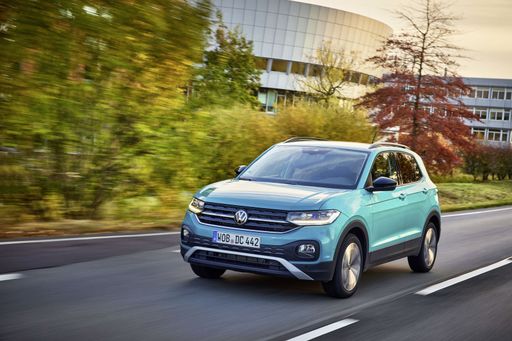 @ Volkswagen
@ Volkswagen
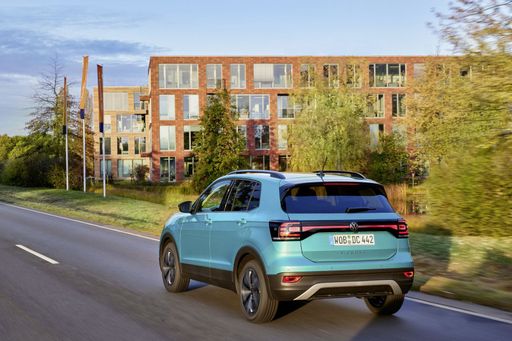 @ Volkswagen
@ Volkswagen
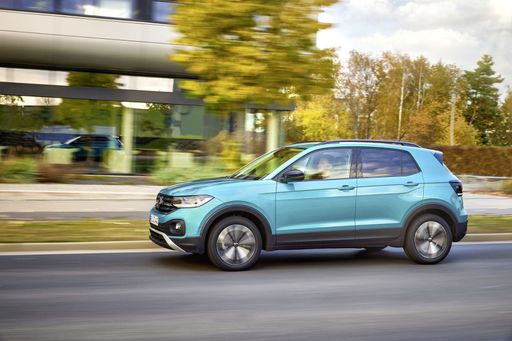 @ Volkswagen
@ Volkswagen
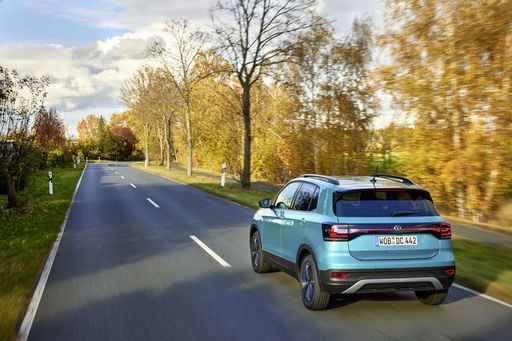 @ Volkswagen
@ Volkswagen
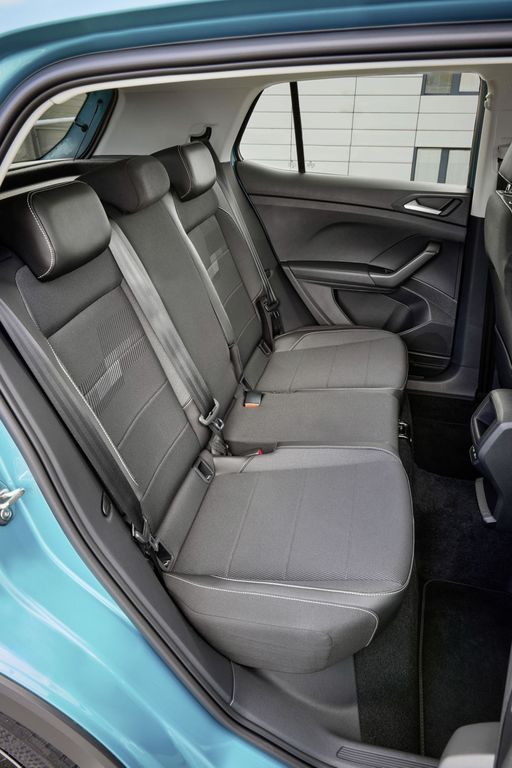 @ Volkswagen
@ Volkswagen
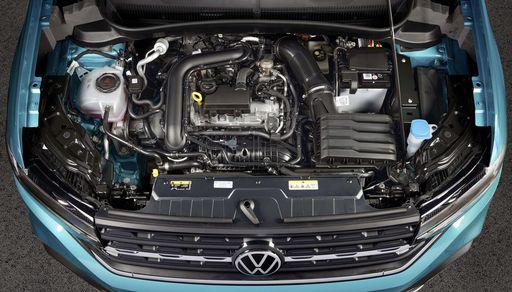 @ Volkswagen
@ Volkswagen
BMW 1 Series
The BMW 1 Series stands out with its dynamic design that embodies both elegance and sportiness, making it an attractive choice for urban driving. Its interior offers a premium feel, combining quality materials with the latest in technological features to enhance comfort and connect drivers. Under the bonnet, a range of efficient engines ensures a responsive and enjoyable driving experience, balancing power with practicality.
details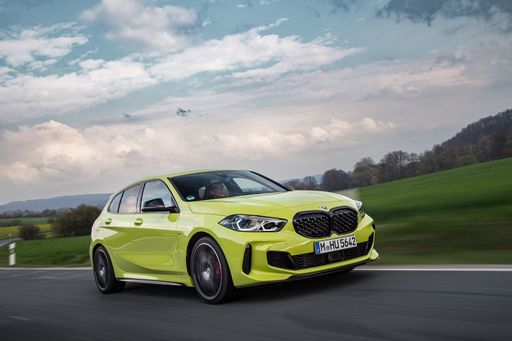 @ press.bmwgroup.com
@ press.bmwgroup.com
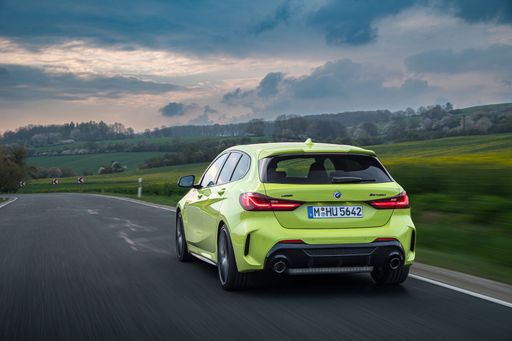 @ press.bmwgroup.com
@ press.bmwgroup.com
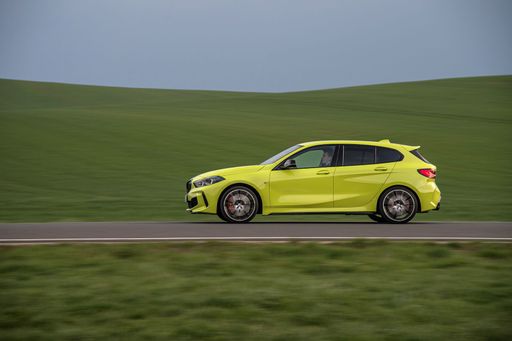 @ press.bmwgroup.com
@ press.bmwgroup.com
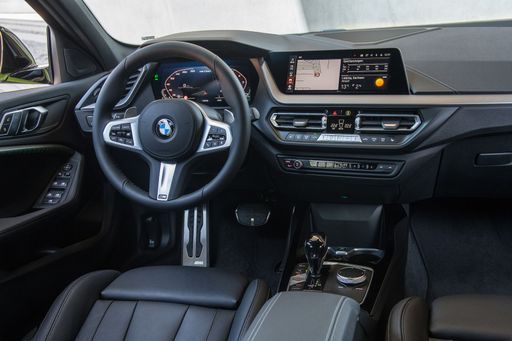 @ press.bmwgroup.com
@ press.bmwgroup.com
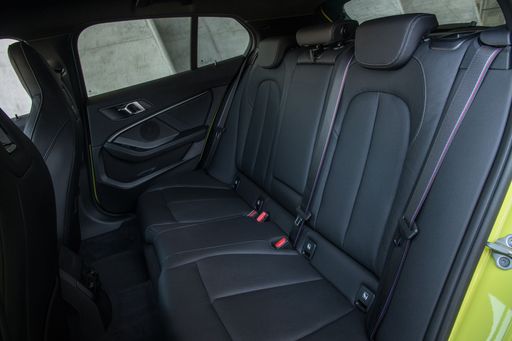 @ press.bmwgroup.com
@ press.bmwgroup.com
An In-Depth Look at the BMW 1er Reihe vs VW T-Cross
As the automotive market evolves, car enthusiasts and everyday drivers alike are constantly comparing vehicles to find the perfect match for their needs. Today, we delve into a comparison between two stellar contenders in distinct segments: the dynamic BMW 1er Reihe and the versatile VW T-Cross. Each offers a unique blend of performance, efficiency, and innovation, catering to diverse tastes and preferences.
Performance and Power
The BMW 1er Reihe impresses with a broad range of engine options, offering both petrol and diesel, including mild-hybrid versions. This series showcases power outputs spanning from 122 HP to an exhilarating 300 HP, paired with either front-wheel or all-wheel drive. The model features a dual-clutch automatic transmission across its lineup, emphasizing a smooth and responsive driving experience, complemented by an acceleration capability of 4.9 to 9.8 seconds from 0 to 100 km/h. High performers in this series boast speeds up to 250 km/h.
In contrast, the VW T-Cross offers a focused lineup of petrol engines, with power outputs ranging from 95 HP to 150 HP. Designed as a front-wheel-drive vehicle, it offers both a manual and dual-clutch automatic transmission option. The T-Cross accelerates from 0 to 100 km/h in 8.4 to 11.2 seconds, reaching a maximum speed between 180 and 200 km/h, making it adept for urban driving and moderate cruising.
Fuel Efficiency and Eco-friendliness
When it comes to fuel efficiency, the BMW 1er Reihe offers competitive consumption rates between 4.3 and 7.6 liters per 100 kilometers, depending on the powertrain. Its CO2 emissions range from 112 g/km to 173 g/km, securing CO2 efficiency classes between C and F. On the other hand, the VW T-Cross, with its all-petrol engine lineup, consumes slightly more fuel at 5.6 to 6 liters per 100 kilometers, with emissions in the range of 127 g/km to 135 g/km, classed as D for efficiency.
Space and Versatility
The BMW 1er Reihe's hatchback design offers a trunk capacity of 380 liters, which is slightly less than the T-Cross's spacious 455-liter trunk. Additionally, its dimensions, with a length of 4361 mm, width of 1800 mm, and height of 1459 mm, contribute to a sleek and sporty profile.
The VW T-Cross, with its SUV body type, provides more vertical space, measuring 1573 mm in height, but is shorter in length at 4127 mm and slightly narrower with a width of 1784 mm. This additional height enhances its practicality and offers a more commanding view of the road, highly desirable for the typical SUV buyer.
Innovation and Features
In terms of innovation, the BMW 1er Reihe stands out with its sophisticated driving dynamics and technology integration, including cutting-edge infotainment and connectivity options, aligning with BMW's premium brand experience. Its hybrid options further highlight a commitment towards more sustainable driving solutions.
Conversely, the VW T-Cross is a beacon of practicality and user-friendly operation, featuring a commendable suite of safety and connectivity technologies. Its focus on functionality does not hinder its capacity to provide a comfortable and enjoyable driving experience, particularly valued by families and urban drivers.
Conclusion
Ultimately, the choice between the BMW 1er Reihe and the VW T-Cross hinges on specific customer priorities. For those seeking thrilling performance wrapped in a sporty design, the BMW 1er Reihe delivers with aplomb. Conversely, the VW T-Cross appeals to those prioritizing space, practicality, and efficiency within a compact SUV format, making it an excellent choice for city professionals and family-oriented drivers.

|

|
|
|
|
Costs and Consumption |
|
|---|---|
|
Price
20900 - 31300 £
|
Price
28200 - 51000 £
|
|
Consumption L/100km
5.4 - 6 L
|
Consumption L/100km
4.3 - 7.6 L
|
|
Consumption kWh/100km
-
|
Consumption kWh/100km
-
|
|
Electric Range
-
|
Electric Range
-
|
|
Battery Capacity
-
|
Battery Capacity
-
|
|
co2
124 - 136 g/km
|
co2
112 - 173 g/km
|
|
Fuel tank capacity
40 L
|
Fuel tank capacity
49 L
|
Dimensions and Body |
|
|---|---|
|
Body Type
SUV
|
Body Type
Hatchback
|
|
Seats
5
|
Seats
5
|
|
Doors
5
|
Doors
5
|
|
Curb weight
1267 - 1338 kg
|
Curb weight
1465 - 1625 kg
|
|
Trunk capacity
455 L
|
Trunk capacity
300 - 380 L
|
|
Length
4127 mm
|
Length
4361 mm
|
|
Width
1784 mm
|
Width
1800 mm
|
|
Height
1573 mm
|
Height
1459 mm
|
|
Payload
463 - 480 kg
|
Payload
475 - 510 kg
|
Engine and Performance |
|
|---|---|
|
Engine Type
Petrol
|
Engine Type
Diesel, Petrol MHEV, Diesel MHEV, Petrol
|
|
Transmission
Manuel, Automatic
|
Transmission
Automatic
|
|
Transmission Detail
Schaltgetriebe, Automat. Schaltgetriebe (Doppelkupplung)
|
Transmission Detail
Automat. Schaltgetriebe (Doppelkupplung)
|
|
Drive Type
Front-Wheel Drive
|
Drive Type
Front-Wheel Drive, All-Wheel Drive
|
|
Power HP
95 - 150 HP
|
Power HP
122 - 300 HP
|
|
Acceleration 0-100km/h
8.4 - 11.3 s
|
Acceleration 0-100km/h
4.9 - 9.8 s
|
|
Max Speed
180 - 200 km/h
|
Max Speed
210 - 250 km/h
|
|
Torque
175 - 250 Nm
|
Torque
230 - 400 Nm
|
|
Number of Cylinders
3 - 4
|
Number of Cylinders
3 - 4
|
|
Power kW
70 - 110 kW
|
Power kW
90 - 221 kW
|
|
Engine capacity
999 - 1498 cm3
|
Engine capacity
1499 - 1998 cm3
|
General |
|
|---|---|
|
Model Year
2024
|
Model Year
2024
|
|
CO2 Efficiency Class
D, E
|
CO2 Efficiency Class
D, C, F
|
|
Brand
VW
|
Brand
BMW
|
VW T-Cross
The VW T-Cross: A Compact SUV with a Punch
Volkswagen’s T-Cross is stamped as one of the most dynamic models in its segment, combining compact dimensions with versatile features. Designed to bring the SUV experience to an everyday environment, the T-Cross ensures both urban convenience and a robust driving performance. Let's delve deeper into its technical specifications and innovative offerings.
Efficient Powertrains and Performance
Under the hood, the VW T-Cross harnesses efficient powertrains including several petrol engine options, ranging from a modest 95 PS to a more dynamic 150 PS. The model's engine configurations offer either manual or automatic transmission options, coupled with a front-wheel-drive system. These specifications aim to strike a balance between spirited driving and fuel efficiency.
The T-Cross comes with a turbocharged 1.0-litre or 1.5-litre TSI engine, equipped with cylinder deactivation (ACT) technology, enhancing fuel economy and reducing emissions. The engines produce a torque range from 175 to 250 Nm, making everyday driving smooth and responsive.
Fuel Efficiency and Environmental Considerations
The VW T-Cross stands out for its commendable fuel consumption figures, running between 5.6 to 6 litres per 100 km. This classifies it within a respectable CO2 efficiency class D, making it an appealing choice for drivers conscious of both their budgets and environmental footprint. The CO2 emissions range from 127 to 135 g/km, reflecting Volkswagen’s commitment to sustainability.
Design and Utility
Sporting a compact design, the T-Cross measures 4127 mm in length, 1784 mm in width, and 1573 mm in height, offering easy manoeuvrability coupled with an elevated driving position. The SUV hosts a 455-litre boot space, providing ample room for personal belongings or shopping expeditions. Priding itself on practical utility, it can comfortably seat five passengers and supports a maximum load capacity of up to 480 kg.
Comfort and Technology
The T-Cross comes available in various trim levels, such as the GOAL, Life, R-Line, and Style, each offering distinct features tailored to customer preferences. Connectivity and infotainment systems are given priority with the availability of a touchscreen display, ensuring convenience through seamless smartphone integration, navigation systems, and a suite of driver assistance features.
A Conclusion on the VW T-Cross
The VW T-Cross is an embodiment of modern ingenuity within the compact SUV market. It harmonises performance with practicality and presents a modernistic approach to urban driving. Whether you seek efficiency, cutting-edge technology, or ample space to accommodate daily activities, the T-Cross makes a compelling proposition. With a pricing bracket spanning from €24,355 to €36,530, the T-Cross caters to a broad array of budgets while promising a touch of Volkswagen's famed quality and innovation.
BMW 1 Series
Exploring the BMW 1 Series: A Compact Powerhouse
The latest iteration of the BMW 1 Series continues to set the benchmark for premium compact cars, blending cutting-edge technology and efficient performance. Known for its sporty design and responsive driving dynamics, the BMW 1 Series offers a range of options that cater to varied preferences and needs. Let’s delve into the technical details and innovations that make this vehicle a standout in its class.
Advanced Engine Variants and Performance
Under the hood, the BMW 1 Series offers a varied selection of powertrains, including diesel, petrol mild-hybrid, and pure petrol options. Power outputs range from 150 to an impressive 300 PS, allowing drivers to opt for either efficiency or sheer performance. The utilisation of mild-hybrid technology in some variants ensures a smooth and efficient drive, with increased torque available for dynamic acceleration.
All models come equipped with an Automatic Transmission, more specifically, a double-clutch gearbox for seamless gear transitions, offering a responsive drive whether you're navigating city streets or the open road. The top-of-the-line M135 variant boasts all-wheel drive capability, enhancing traction and control even further.
Efficient and Sustainable Driving
The BMW 1 Series is engineered for efficiency, achieving fuel consumption as low as 4.3 litres per 100 km in some diesel variants, while the petrol models also demonstrate competitive efficiency ratings. In terms of emissions, the range offers CO2 output figures between 112 to 173 g/km, garnering respectable CO2-efficiency ratings. Additionally, the mild-hybrid variants benefit from regenerative braking, which captures energy usually lost during braking and uses it to power the vehicle.
Innovative Technology and Comfort
Step inside the BMW 1 Series and you'll find a driver-focused cockpit outfitted with the latest in automotive technology. The infotainment system is hosted on a high-resolution display, providing easy access to navigation, entertainment, and vehicle settings. Key features like smartphone integration and voice control enhance the connectivity options available, creating a seamless link between driver and machine.
On the comfort front, the BMW 1 Series provides a refined interior experience, with high-quality materials and finishes. There's generous space for up to five passengers, alongside a versatile boot capacity that ranges from 300 to 380 litres, accommodating both daily errands and weekend getaways.
Design and Dimensions
The exterior design of the BMW 1 Series showcases its sporty lineage with a compact and agile silhouette. Measuring 4361 mm in length and 1800 mm in width, it maintains a confident road stance, while its height of 1459 mm contributes to a sleek, aerodynamic profile. Furthermore, the 1 Series is available in several stylistic options, providing aesthetics that can be customised to personal preference, including M Sport packages that introduce more aggressive styling cues.
Conclusion: A Harmony of Performance and Comfort
The BMW 1 Series deftly balances performance, efficiency, and comfort, making it a compelling choice for those in the market for a premium compact car. With its range of powerful engines, state-of-the-art technology, and stylish design, the BMW 1 Series remains a leader in its segment. Whether you prioritise sporty performance or efficient urban commuting, the 1 Series is equipped to deliver beyond expectations.
The prices and data displayed are estimates based on German list prices and may vary by country. This information is not legally binding.
